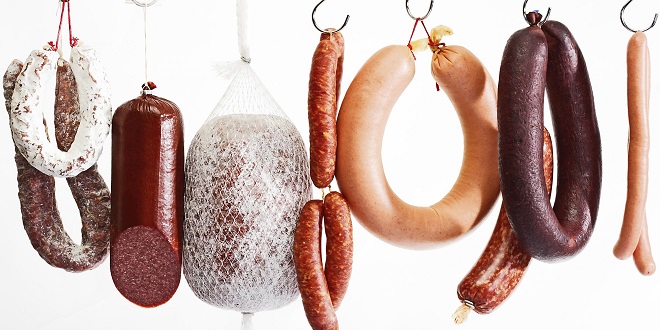Sausages are a way of preserving and consuming meat, this process is a tradition. Its elaboration requires several elements, among them, the casing to stuff. The casing for sausages is a thin and fine film that can be of different types. This acts as a container to provide greater conservation and also helps improve the flavor. The sausage casing can be artificial or they can also be natural casings. However, innovation in the food industry has developed new guts in the field of food production.
Consumers are increasingly looking for quality and freshness in food, as well as knowing how it has been prepared. The elaboration of the so-called casing for sausages requires particular challenges, since they must be adapted to the chemical and biological changes of the product.
Get to know some types of casing for sausages, their characteristics and advantages
- Collagen casings: it is solubilized bovine leather, reformed into a uniform tube of collagen, manufactured in various sizes. high quality, are considered to belong to the Premium group. These allow the permeability of water vapor and gasses.
- Cellulose casings: it is the typical casing for skinless frankfurter sausages. They are tailored and highly uniform casings that facilitate the use of sausages in the food industry. Such casings are important for ease of peeling and a final step in high-grade steam or moisture cooking.
- Fibrous Casings: Consist of cellulose with paper fibers that help increase the strength of the casing. The fibrous fibers are uniform and compatible with high-speed stuffing machines and are ideal for allowing air to escape during the stuffing process.
Each sausage casing has its special characteristics and functions, since not all fillings have the same characteristics. It is necessary to choose the appropriate sausage casing so as not to interfere with the product’s maturation processes.
HOW TO KNOW WHICH IS THE BEST CASING (COVER) FOR YOUR PRODUCT?
When choosing the best casing (casing) for your product, natural casings are the softest and best for small diameter fresh sausages and smoked and cooked sausages. Many options to consider when it comes to stuffing casings, including natural ones, those made from collagen, co-extruded collagen and alginate, cellulose, fibrous, and casings made from moisture-impermeable materials.
NATURAL COVERS
Natural casings are more expensive than many other casing types, but there is a growing interest in them due to their association with premium products. Natural casings are derived from the gastrointestinal tract of animals for human consumption (sheep, pigs, cattle) with lamb casings being the thinnest (16-28 mm diameter), the softest and the best for fresh sausages and smoked sausages and small diameter cooked .
Pig casings are somewhat larger (30-42 mm diameter) and less soft, while bovine casings are the largest (35-125 mm), the hardest and most suitable for large-diameter products. which ones need more strength. These large diameter casings are sometimes tied with string or netting to provide the necessary strength to allow sausage products to hang in the smoker.
Natural casings (casings) are essentially all collagen because the inner mucosa and outer layers of fat and muscle of the raw casings are removed, leaving the middle collagen layer to be used as a casing. An important property of collagen that is applicable during processing is that wet collagen is permeable, but becomes very soft and weak, while dry collagen becomes hard and less permeable to moisture and smoke.
Consequently, natural casings must be handled correctly during processing to achieve the desired softness and permeability required for a specific product. The initial step of the smoker oven should include a moderately dry environment to retain the strength of the casing but still allow smoke penetration. After smoking, further drying may be applied to render the casing nearly complete and irreversibly impermeable to moisture. The casing can then tolerate a variety of final cooking treatments, even as extreme as steam cooking, without excessive loss of moisture from the product.
MANUFACTURED COLLAGEN
The collagen manufactured is animal collagen (usually from bovine hides) that is first solubilized. It is then reformed into a uniform tube of collagen of various sizes. The casings have the same property as natural casings in terms of the need for appropriate processing treatments for softness and permeability, but have an advantage in terms of greater uniformity and consistency than natural casings . Casings made from collagen also avoid the problem of potential microbiological loads and an occasional rancid fat-covered surface that sometimes occurs in natural casings.
MOISTURE PERMEABLE COVERS
Many different types of materials, including polyethylene, nylon, and many others, are used to make moisture-proof covers , which are often used for water-cooked and steam-cooked products. These casings are typically impervious to both moisture and smoke, so a smoke flavoring, such as liquid smoke, must be incorporated into the meat mixture. Color is incorporated into many of these casings, such as those frequently used for German Braunschweiger sausages , which is a type of liver sausage .The advantages of these casings include minimal cooking shrinkage in the products and a finished product that is very well protected from external contamination, as long as the casing is intact.
 Pagal World
Pagal World




